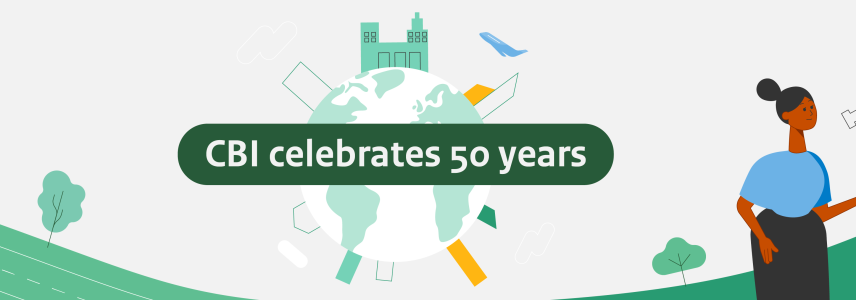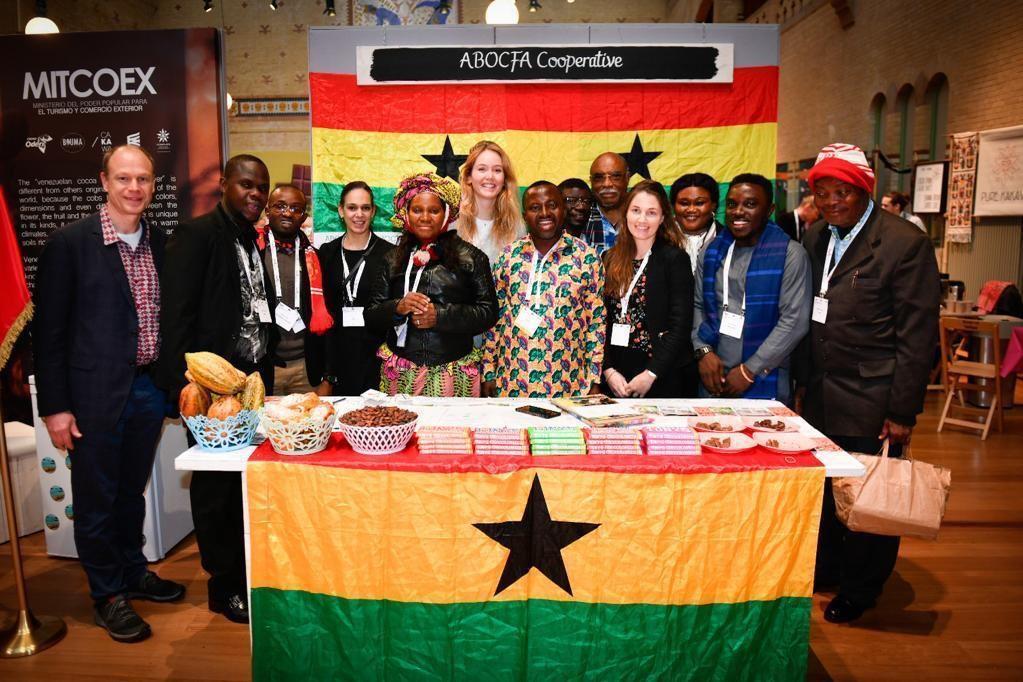Export as a way to create sustainable change

International markets have changed a lot since the Centre for the Promotion of Imports from developing countries (CBI) started its mission in 1971. CBI has continuously updated its strategies to adapt to the latest circumstances. But the goal has always been the same: to strengthen small and medium enterprises (SMEs) in developing countries. So, how has CBI’s mission developed in the last 50 years? And what effect has this had on the people working at CBI?
CBI’s starting point

SMEs have always been the starting point. “SMEs are vital to economies,” says managing director Pauline Döll. “They have a direct influence on so many people’s daily lives.” That is why strengthening the position of SMEs is a good step toward improving the living conditions in the countries CBI works with. Until now, CBI used to support SMEs by helping them increase their export as much as possible.
“In the 80s, we only looked at export to the Netherlands,” says Programme Manager Hugo Verhoeven. Hugo has been working for CBI since 1989. “But, with a few extra investments, we were able to introduce SMEs to a bigger audience.” CBI’s strategy quickly adapted to include the European Union (EU) as a sales market. SMEs working with CBI were able to present themselves at trade shows across the continent. Another important part of CBI’s strategy was providing information. “Exporting to Europe was very complicated. And information about exporting to European markets was hard to find,” says Hugo. “That is why we published export books and a news bulletin that was distributed in over 100 countries.”
Making valuable connections

The goal of CBI’s strategy was to help entrepreneurs become independent. During CBI projects, CBI staff often formed valuable connections with participants. “We provide information and advice, but they have to implement it themselves,” says Melanie van de Baaren-Haga. Melanie has been a programme manager for CBI since 2008. “After a 5-year project, you can tell that the participants have grown so much. I once worked with an entrepreneur from India. He told me that he would have never made it this far without our help. He still calls me every year to catch up. Those kinds of connections are very meaningful.”
Shifting strategy
With the new 2021-2025 strategy, CBI’s mission has shifted from increasing export to contributing to inclusive and sustainable economies. CBI will do this by promoting Corporate Social Responsibility (CSR). “Export is still a way to strengthen economies, but we now also look at how we can contribute at a systemic level,” says Pauline. “Change and innovation can only work if you include the environment of an enterprise. This means looking at the government, legal framework, NGOs and financing solutions in the SME’s country. To become sustainable, everyone needs to do their part at the different stages.”
CBI is now positioning itself in this environment. CBI works with companies that often cannot afford to invest for a decade. “That is why we focus on the demand that already exists in Europe,” says Pauline. “We show companies the opportunities that come with sustainability and demonstrate its importance. The message is simple: If you do not take sustainability into account, you will not reach your export potential. This business-minded approach will help us reach our goals and achieve long-term change.”
Creating impact at a systemic level
Part of the new CBI strategy involves dealing with problems at the systemic level. This means addressing primary causes instead of symptoms. “More and more often, we try to work from a local context. Our project teams include an increasing number of local experts,” says CSR advisor Lisanne van Beek. Lisanne joined CBI in 2013.
For a new project in Kenya, CBI aims to improve the economic position of women. “In the project design phase, we involved different types of stakeholders. For example, we involved local women’s business associations, women entrepreneurs, financial institutions, NGOs and the Kenyan Chamber of Commerce and the Ministry of Public Service and Gender. Including many stakeholders helps us to better understand the system. It also helps us see where we can get involved to create the most impact.”
We are human first
Sustainability, independence, and gender equality are important values within the organisation. “When I started at CBI, I received a lot of guidance. But at the same time, I had plenty of space to make my own choices,” says AMID-trainee Rikke van der Veen. “The work environment is very open, and CBI encourages learning. As a government organisation, you have to adapt to changing circumstances to stay relevant.”
You can also see the importance of gender equality and decent working conditions at CBI. “The people here pay attention to how you feel,” says Lisanne. “How you feel influences how you work. Instead of focusing on what works well, you can discuss challenges and lessons learnt. This is in line with the new way of working in our projects. We take a flexible approach, learn by doing, and make adjustments when needed.”

Having an exchange
“People at CBI love experimenting with ideas and using trends in their work,” says Pauline. “If something is difficult, it means you have an opportunity to learn. It is important to us that everything can be shared, including emotions.”
“Honest communication is everything,” Pauline continues. “You are not just having a conversation; you are having an exchange. This is true whether you are talking with colleagues or international partners.” This is a principle that has not changed over the last 50 years. And we hope to continue to have honest conversations for many years to come.
More CBI stories
You can find this story and many others in our 50 years of CBI e-zine.